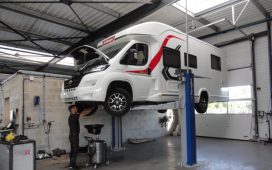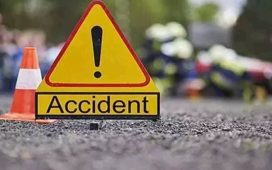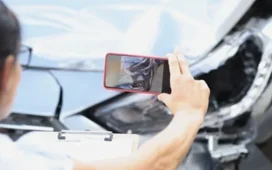That sudden squeal as you brake at a red light, the persistent humming that seems to be getting louder on the highway, or even a concerning knocking sound emanating from under the hood – strange noises coming from your car can be unsettling. Ignoring these auditory clues might seem easier in the moment, especially with our busy lives, but trust us, those sounds are your car’s way of telling you something isn’t right. Letting these issues fester can lead to more significant problems down the road, potentially leaving you stranded and facing hefty repair bills. This guide will walk you through some common car sounds and what they might indicate, but remember, when in doubt, a trip to your trusted mechanic or even your local muffler shop (depending on the sound!) is always the best course of action.
Decoding the Symphony of Strange Car Sounds
Your car is a complex machine with many moving parts, and when something goes amiss, it often announces itself through unusual sounds. Here’s a breakdown of some common culprits:
A. The High-Pitched Chorus: Squealing and Screeching
Braking Blues:
A high-pitched squeal or screech when you apply the brakes is a classic sign of worn brake pads. As the friction material thins, a metal indicator often makes contact with the rotor, creating that ear-piercing sound. Ignoring this can lead to damage to your rotors and calipers, increasing the repair cost. Sometimes, a rusty rotor can also cause a temporary squeal.
Belt Trouble:
A persistent squealing or screeching sound, particularly noticeable when the engine is first started or when accelerating, could indicate a loose or worn serpentine belt. This belt powers essential components like your alternator, power steering pump, and air conditioning compressor. A failing belt can lead to a loss of these functions.
Steering Woes:
A squealing sound when you turn the steering wheel might point to a problem with your power steering pump, possibly due to low fluid or a failing pump.
B. The Grumbling Groan: Grinding Sounds
Brake Breakdown:
A deep grinding sound when braking often means you’ve gone beyond worn brake pads and are now grinding metal on metal – rotor against caliper. This is a serious issue that requires immediate attention.
Bearing Blues:
A low-pitched grinding noise that seems to come from the wheels and intensifies with speed could indicate a problem with a wheel bearing. These bearings allow your wheels to rotate smoothly, and when they fail, they can cause significant damage and even lead to wheel lock-up in severe cases.
Transmission Tribulations:
A grinding sound when shifting gears (in a manual transmission) or a general grinding or clunking from underneath the car (in an automatic) could signal problems within the transmission itself, possibly due to low fluid or internal damage.
C. The Rhythmic Taps: Clicking and Ticking
Engine Warm-Up:
A light, rapid ticking sound that you hear when the engine is cold and that disappears as it warms up is often normal valve lifter noise as oil circulates.
Persistent Patter:
A constant ticking sound from the engine bay could indicate low engine oil, valve issues, or even a small exhaust leak. An exhaust leak might even sound like a louder, more forceful ticking or even a light popping, and sometimes a muffler shop is the first-place people go to investigate these sounds.
Turning Trouble:
A clicking sound that you hear specifically when turning your car often points to worn-out CV (constant velocity) joints, which are part of your front-wheel-drive or all-wheel-drive system.
D. The Heavy Hitters: Knocking and Banging
Engine Emergency:
A deep, rhythmic knocking or banging sound coming from the engine is a serious red flag. It could indicate a severe internal engine problem, such as rod knock, which requires immediate professional attention.
Suspension Struggles:
A knocking or banging sound, particularly when going over bumps, could indicate worn shocks, struts, or bushings in your suspension system.
Exhaust Explosions:
A loud banging or knocking sound from underneath the car could be a sign of loose or damaged exhaust components. Sometimes, a loose heat shield can also cause a rattling or banging noise. Your local muffler shop will be well-equipped to handle these types of issues.
E. The Subtle Escape: Hissing Sounds
Coolant Catastrophe:
A hissing sound, often accompanied by the smell of antifreeze and possibly steam, likely indicates a coolant leak. This can lead to your engine overheating, a very serious issue.
Vacuum Villain:
A hissing sound from the engine bay could also be a vacuum leak. Vacuum lines are essential for various engine functions, and a leak can cause performance problems.
Tire Trouble:
A slow, steady hissing sound coming from a tire indicates an air leak, possibly from a puncture.
F. The Low Drone: Whirring and Humming
Bearing Blues (Again):
A whirring or humming sound that seems to be coming from the wheels and changes with speed can also be a sign of a failing wheel bearing.
Tire Talk:
Sometimes, uneven tire wear or specific tire types can produce a humming sound, especially at highway speeds.
Differential Distress:
In rear-wheel-drive vehicles, a humming or whirring sound coming from the rear could indicate a problem with the differential, possibly due to low fluid or internal damage.
G. The Backfire Burst: Popping Sounds
Engine Errors:
Popping or backfiring sounds, often coming from the exhaust, can be caused by engine misfires or unburnt fuel igniting in the exhaust system.
Exhaust Issues:
As mentioned earlier, leaks or damage in the exhaust system can also lead to popping sounds. A reputable muffler shop can diagnose and repair these exhaust-related noises.
When Silence Isn’t Golden: Knowing When to Call the Pros
While this guide offers some potential explanations for those strange car sounds, it’s crucial to remember that it’s not a substitute for a professional diagnosis. You should absolutely consult a qualified mechanic if:
- The sound is persistent or seems to be getting louder or more frequent.
- The strange noise is accompanied by other symptoms, such as warning lights on your dashboard, a decrease in performance, or unusual smells.
- You are simply unsure about the cause of the sound.
Ignoring these warning signs can lead to more extensive damage and costlier repairs down the line. Early diagnosis and intervention can save you time, money, and potential safety hazards.
Listen Up, Drive Safe
Your car communicates with you in many ways, and those strange sounds are an important part of that conversation. By paying attention to these auditory cues and seeking professional help when necessary, you can keep your vehicle running smoothly and safely for years to come. Don’t ignore the whispers and groans – they might just save you from a roadside headache and a hefty bill from the mechanic (or even the muffler shop!).












